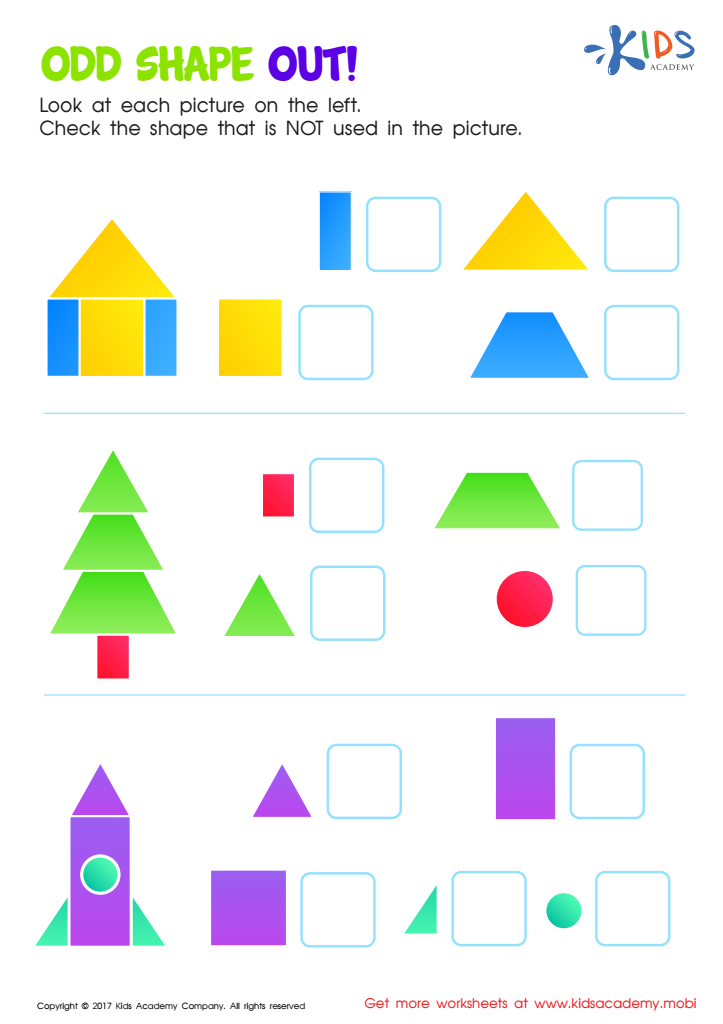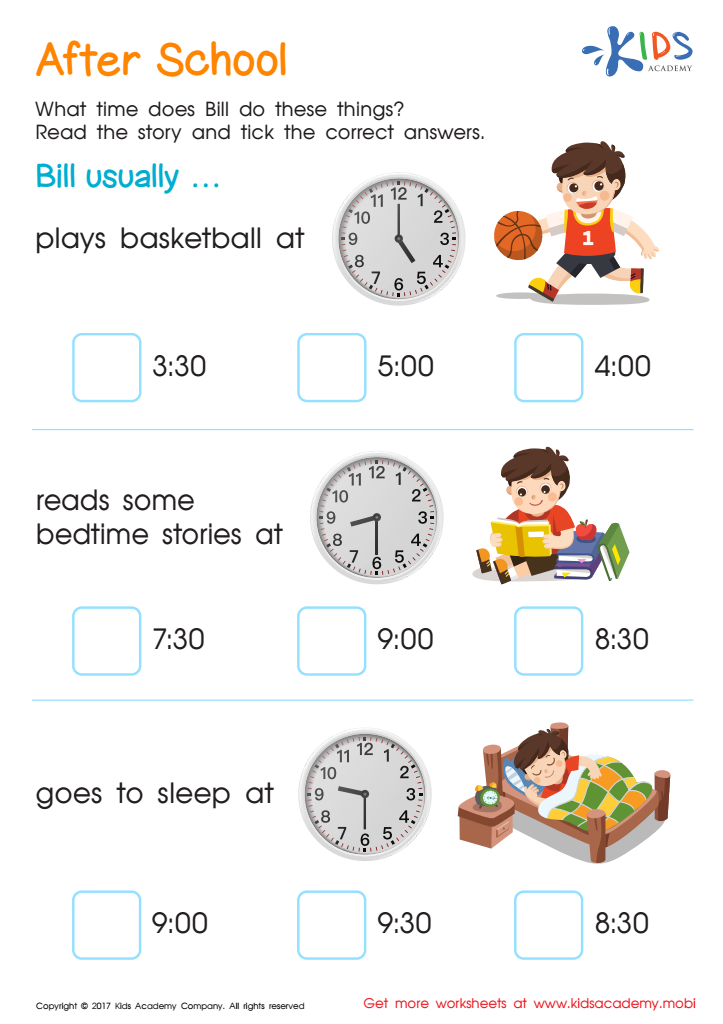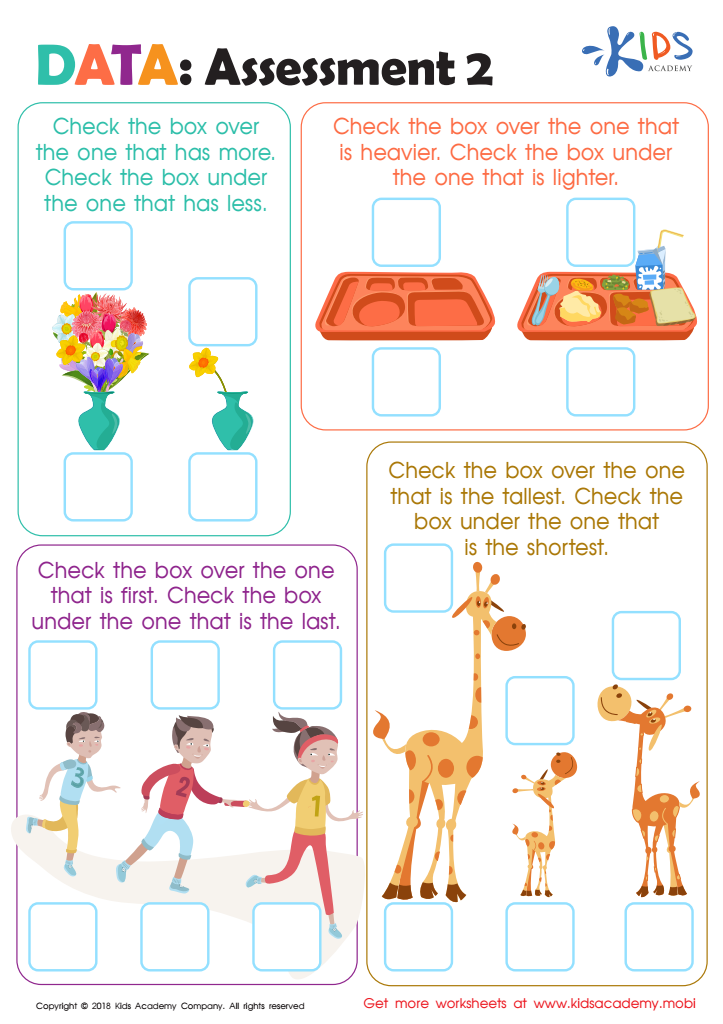Analytical thinking Math Worksheets for Ages 4-9
5 filtered results
-
From - To
Elevate your child's math skills with our Analytical Thinking Math Worksheets for Ages 4-9! Carefully crafted to enhance logic and problem-solving abilities, these engaging worksheets cover key concepts in arithmetic, geometry, and patterns. Each activity encourages critical thinking by presenting fun challenges that nurture young minds. Our resources align with educational standards, ensuring a comprehensive and supportive learning experience. Perfect for use at home or in the classroom, these worksheets foster a love for math while building essential analytical skills. Watch your child’s confidence grow as they master math one worksheet at a time!


The 5 Sense Scientist Worksheet


Odd Shape Out Worksheet for Grade 1


Logic Game Sorting Worksheet


After School Time Printable


Data: Assessment 2 Worksheet
Parents and teachers should deeply care about fostering analytical thinking in math for children aged 4-9 because these formative years lay the foundation for their future cognitive development. Analytical thinking encourages children to break problems into smaller parts, analyze patterns, and make reasoned decisions. These skills are not just crucial for excelling in mathematics; they are essential life skills that aid in understanding complex scenarios and solving real-world problems.
Early exposure to analytical thinking in math nurtures a child's curiosity and enhances their ability to think critically and independently. This early practice helps develop neural pathways associated with reasoning and logical thinking. Such skills boost their academic performance and contribute to their overall cognitive development, promoting better learning habits and resilience.
Moreover, incorporating analytical thinking in early math education fosters a positive attitude towards challenges. Rather than being fearful of difficulties, children learn to approach problems methodically and persistently. This can lead to greater confidence and a love for learning that extends beyond mathematics, shaping well-rounded, thoughtful individuals. Additionally, in a world that increasingly values problem-solving and creative thinking, early math skills provide a competitive edge for future academic and professional pursuits.
Therefore, prioritizing analytical thinking in math during early childhood ensures holistic development, paving the way for lifelong learning and success.

 Assign to My Students
Assign to My Students





















